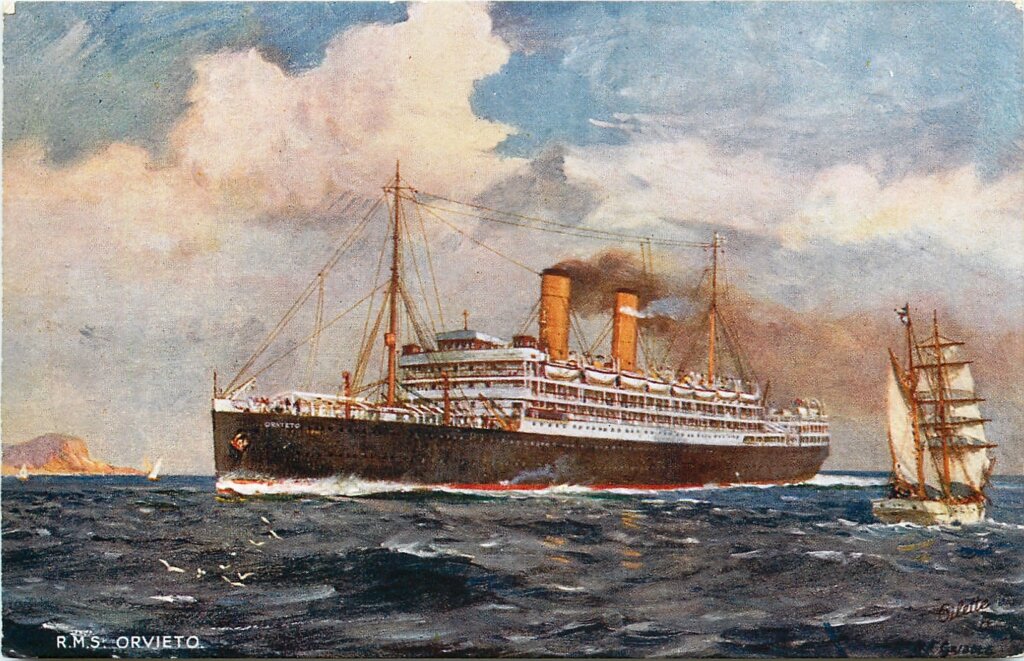Captain James Annadale Hope-Johnstone and Mr Muschamp Earle, two English tourists, decided in 1908 to inspect New Zealand’s scenery, travelling in a caravan. In this conveyance – unique for the time – they toured from Auckland through the country as far as Tarawera. They spent two months fishing and shooting at Rotorua and Okere but then they decided to discontinue their journey in the caravan. “Owing to the lateness of the season,” Mr Muschamp Earle informed the press, “and also the glorious uncertainty of the weather, touring in a caravan is not what it may appear to be to those who have not had the personal experience. The condition of the roads in the majority of the parts of the Dominion is too appalling to describe.” The caravan was discarded for a 43 horse-power automobile.

The liner Orvieto
The two gentlemen intended to tour the South Island before they left for Tahiti, then China, Manchuria, Japan, and across to England, via Canada. Captain Hope-Johnstone had already travelled considerably in America, Europe, India, and Australia, and had served two years in the war in South Africa. He was considered one of the crack riders of the British Army. Mr Muschamp Earle was a cousin of Mr Edwin Bainbridge, an English tourist who was killed at Wairoa during the Tarawera eruption.
Captain Hope-Johnstone stated he has been most hospitably treated during his stay in New Zealand, a period of eighteen months. During the last month of their tour the captain accompanied the Anglo-Welsh football team on its travels. He thought New Zealand a very fine country, but rather over-done from a political point of view.
Despite this by 1910 the Captain was back again, this time bringing his new wife, Ethel, known as Buntie, the couple arriving by the new Orient ocean liner Orvieto. The Captain had purchased a farm named Aratitaha, at Pukeatua, in the Kihikihi district. James and Buntie were active in community events and in 1914 they welcomed a daughter.
But this happiness was tinged with sadness when James left to serve in France with the Imperial army for four and a half years. Buntie then stepped up and successfully farmed their near 3000 acres. She had a great fondness for animals, and took special interest in her cows and her dairy. She had two brothers fighting in the Imperial forces. The younger, who spent nearly two years living at Aratitaha with Buntie, was killed at Gallipoli.
During the 1918 flu epidemic Buntie, who had a smile for everybody, was noted for her hospitality, generosity, and charming disposition. Finally, in 1919 James returned home. He left New Zealand with the rank of captain and was promoted in the field to second in command of the Battalion and was now a Major.
In early 1920 tragedy struck when Buntie gave birth to a still-born son. Six days later Buntie also died aged 33. She had been born in Benares, India, where she spent the early days of her childhood. Her father was Colonel Edward Wighton, Royal Field Artillery, who saw active service in Afghanistan and Burma. She was widely known in the Waipā district and in Auckland, where she had many friends, and was loved and respected by all who knew her.
Buntie was temporarily interred in the Te Awamutu cemetery. Subsequent arrangements were made for her to be sent to England for interment in the family vault at Richmond.









